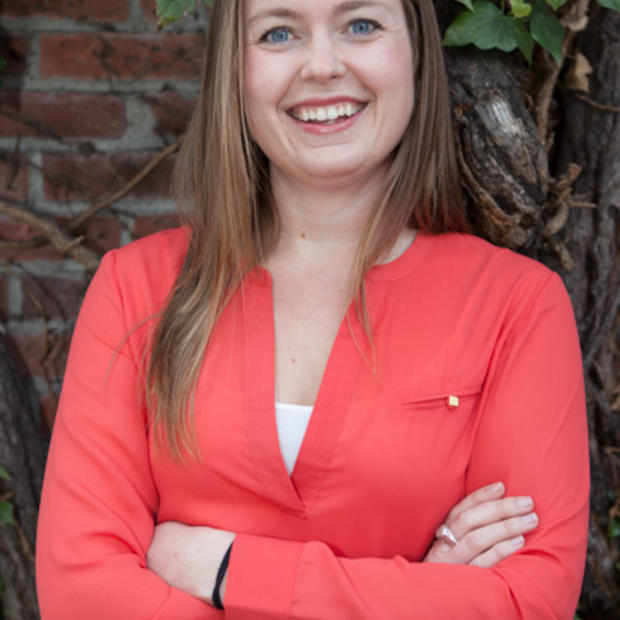1. How T-Mobile's John Legere has made Verizon & AT&T sweat.
Known for his brash style and dirty mouth, T-Mobile CEO John Legere dropped more than a few f-bombs Thursday. But in between his wisecracks, he also dropped more than a little insight into T-Mobile's unconventional strategy for gaining ground in the mobile industry. It's simple, really: Listen to your customers.
Legere, who has T-Mobile direct customer service complaints to his personal Twitter account, answers all of his own emails and tweets and often listens in on customer service calls. It's time-consuming being that responsive: He starts every morning by spending an hour and a half in bed on Twitter and mentioned to fans after his interview that he's not sure how the practice will scale.
But that approach is how he formed the basis of T-Mobile's Un-carrier initiative: In the interest of gaining market share, the company allows unlimited phone upgrades, has dropped annual contracts and overage fees for going over your minutes or using too much data, and will pay early termination fees for any customer who switches over from another carrier. Most recently, they announced free Wi-Fi calling and texting on all new phones.
2. The U.S. government's preliminary plans for tackling the ebola outbreak through tech.
When Steve VanRoekel appeared in Seattle on Thursday, he was the Chief Information Officer for the White House. On Monday, just two working days later, VanRoekel starts his new position, helping manage the coordination and efficiency of U.S. efforts to fight ebola. VanRoekel will be working as an advisor to USAID administrator Rajiv Shah and will serve as the agency's Chief Innovation Officer. The White House says it will work quickly to fill the CIO position.
VanRoekel, a former Microsoft exec who helped with the founding of the Gates Foundation, had obviously already put some thought into how tech could help control the deadly disease. Revamped protective suits for aid workers (current suits, he said, are made for labs outfitted with AC, not West African summers), body worn sensors that can detect the ebola virus, ruggedized tablets, innovations in epidemiology, social campaigns to communicate with citizens and coordinate efforts, and tracking big data to frontload aid supplies and clinics in areas that need them are all ideas he's considering.
And, like any self-respecting nerd, he's crowdsourcing the problem to help come up with a more complete solution set. “Last Friday we launched this grand challenge for the private sector to help them think about how you could innovate …” he told the Geekwire audience.
“This challenge is exciting for me."
3. How Zulily launched a $253 million mom-volution by keeping its trap shut.
Zulily Chairman Mark Vadon knows an opportunity when he sees one. “There’s something like 39 million moms in the U.S.," he told Geekwire Summit attendees Thursday. "Moms control about 70 percent of the household income.” And when he and the mom in his family had their first baby, the boxes of baby clothes started pouring in. That's when the light bulb went on for him.
In 2010, Vadon and co-founder Darrell Cavens launched Zulily, an online vendor of independent small-batch apparel and merchandise that boasted $18 million in sales in its first year. But the co-founder purposely kept a very low profile, limiting their press efforts as much as possible to avoid drawing attention to the company's huge market, which they worried might attract more competitors.
“When you are drilling and you hit an oil patch, the last thing you want is people coming and drilling right next to you,” he said.
Later, he added, "“Plus I don’t like when everybody knows how much money I have.”
The strategy paid off: Last November, Zulily IPOed at $253 million and shares jumped 88 percent during the first day of trading. Vadon is now a billionaire.
4. The weirdest thing Rover's CEO has ever been asked to do with a dog.
Rover CEO Aaron Easterly runs a company that connects pet owners and amateur dog-sitters, so it's no surprise he's done some dog-sitting of his own. On Thursday's Geekwire panel about crowdsourcing, Easterly recounted his wierdest request from a pet-owner heading out on vacation. A dog-owner himself, Easterly had invited the woman over to make sure their pets' personalities meshed and to show her around his house.
The tour over, the woman hemmed and hawed about her dog's sleeping arrangements. Her requests got progressively more detailed: He needed to sleep in the bedroom. Well, actually, he needed to sleep on the bed. Well, actually he needed to sleep in the bed.
Well, actually there had to be "skin-on-skin contact."
“Did you just ask me to sleep naked next to your dog?” Easterly asked. Though he didn't cop to whether or not he took the strange request, he made his love of dogs clear.
“I challenge any one of you to come up with something that has done more for the sustained net happiness of mankind than the domestication of dogs," he said. "… maybe music, maybe fire.”



